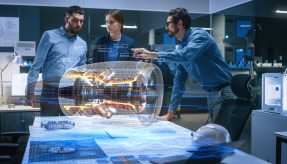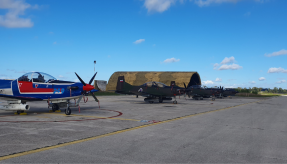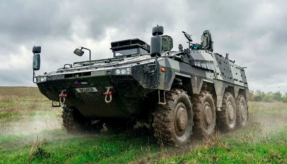
Most manufacturing sectors are changing how they work to improve sustainability with aerospace, in particular, facing big changes.
The aerospace sector is a subject of intense focus as the climate crisis worsens, and policies are changing to improve sustainability in the manufacture and operation of aircraft. Air travel contributes around 2.5% of all global carbon emissions, with that number expected to increase without intervention. Currently, there is no alternative to fossil fuels that can power air travel as efficiently.
The situation is improving, but the innovations needed to make aviation green are still years away. Also, climate change can change how aircraft has to operate. Turbulence can be increased due to a stronger jet stream, extreme temperatures can damage aircraft, and even change the speed and times of flights. Laws and regulations are changing to tackle the carbon footprint of the industry and create greener ways of flying.
International agreement CORSIA (Carbon Offsetting and Reduction Scheme for International Aviation) came into effect at the start of 2019 and aims to reduce the industry’s carbon footprint by 2.5billion tonnes of Co2 between 2021 and 2035. The scheme focuses on international aviation as domestic flights are subject to their national laws. Under the scheme, all airlines must report their carbon emissions on a regular basis.
The process of offsetting will begin in 2021 and is projected to provide $40billion for climate projects. The second phase of the legislation will include all states that have a share in international activities. This will cover RTKs in 2018 above 0.5% and those with a cumulative share in the list of states reaching 90% of RTKs. The rules will exclude developing countries unless they volunteer to take part.
Participants will reduce their environmental impact by financing a reduction of emissions elsewhere. This could include the funding of sustainable alternatives to fossil fuel energy such as wind and solar power or methods of reducing environmental harm such as methane capture. Methods of offsetting carbon will be guided by existing trading mechanisms. The ruling was developed by international organisations including the European Union. Airlines can also buy ‘CORSIA-eligible’ fuels that generate lower emissions on a life cycle basis and ones not made from biomass taken from land with high carbon stock.
Since the scheme was created, 78 countries including the UK, Australia, and Canada, have voluntarily signed up. The programme has faced some difficulty deciding what counts as carbon offsetting. The creation of a list of acceptable offset projects has been held up by debates. Countries including Brazil and China have yet to sign up, and negotiations are continuing.
Sustainable practices for decommissioned aircraft and recycling have become more common in recent years. Around 80% of most aircraft are made of recyclable material, with interiors presenting the biggest challenge. The introduction of materials like carbon fibre can complicate the process as they become more common in aircraft. Aircraft are not currently designed with recycling in mind. Under the Clean Sky project, the SENTRY scheme in Europe is aiming to reuse decommissioned aircraft parts to create new vehicles. SENTRY deals with dismantling and recycling fuselage panels designed within the Eco-Design for Airframe (EDA) project in the Clean Sky Programme. SENTRY promises to assess current decommissioning practices and submit new proposals for metallic alloy and low weight panel recycling. The process will also keep an inventory of carbon emissions during the manufacture and recycling of parts. The initiative also aims to improve current aircraft recycling practices.
Current recycling methods do not separate materials and alloys found in panels and instead process them collectively which is not as efficient. SENTRY allows for these panels to be used in the manufacture of new aircraft. This ensures valuable materials from aircraft are reused properly. The majority of the funding for SENTRY comes from the EU and the project is managed by the Ik4 R&D Alliance.
Another challenge is recycling aircraft that weren’t designed with reusability in mind. Recyclability is a bigger factor in the manufacture of new aircraft, but total sustainability is still a long way off. In the future, planes would have to be designed and built with their decommissioning in mind so that when they are taken apart all components can be recycled. The trend has been positive, however, with up to 85% of modern decommissioned aircraft being recycled as opposed to 30% some years ago.
Sustainable Aviation Fuel (SAF) includes a number of sources but generally involves biofuels. Plant or animal material can be burned in a similar process to fossil fuels, releasing energy and producing less CO2 while remaining sustainable. The first flight with biofuels took off in 2008 and since then 150,000 flights have used biofuels for power. SAF also includes municipal solid waste and products like used cooking oil. Crops such as algae, halophytes, and camelina can be grown easily and used as fuel. Other SAFs include waste gases produced in steel manufacturing and cellulosic waste like agricultural byproducts processed into synthetic fuel blended with traditional kerosene.
One process for creating jet fuel that ranks as particularly ambitious is aiming to create fuel with CO2 from the air. The process takes hydrogen from water and combines it with carbon dioxide to create fuel. However, the process is currently significantly more expensive than traditional fossil fuels and slower.
The process has been demonstrated in the UK, US, and Canada, but the preference is capturing carbon in biofuels. Electric planes are another potential solution, functioning in a similar way to electric cars. German company Lilium has created an aircraft powered by electricity and aims to establish a taxi service that could provide short, affordable flights on demand. The Lilium jet can fly at speeds of around 300km an hour, connecting cities as well as providing commuters with an alternative mode of transport. The electric 36 engines are more environmentally friendly and the first electric jet engines with commercial certification. Low-carbon fuel can often be more cost-effective, generating longer flight times from the same amount of fuel. Electric jets also benefit from an easier ride with less noise and lower ticket costs as well as reducing air resistance, making them ideal for commercial flights.
If you would like to join our community and read more articles like this then please click here.
aerospace aircraft decomissioning environment EU fuel manufacturing







